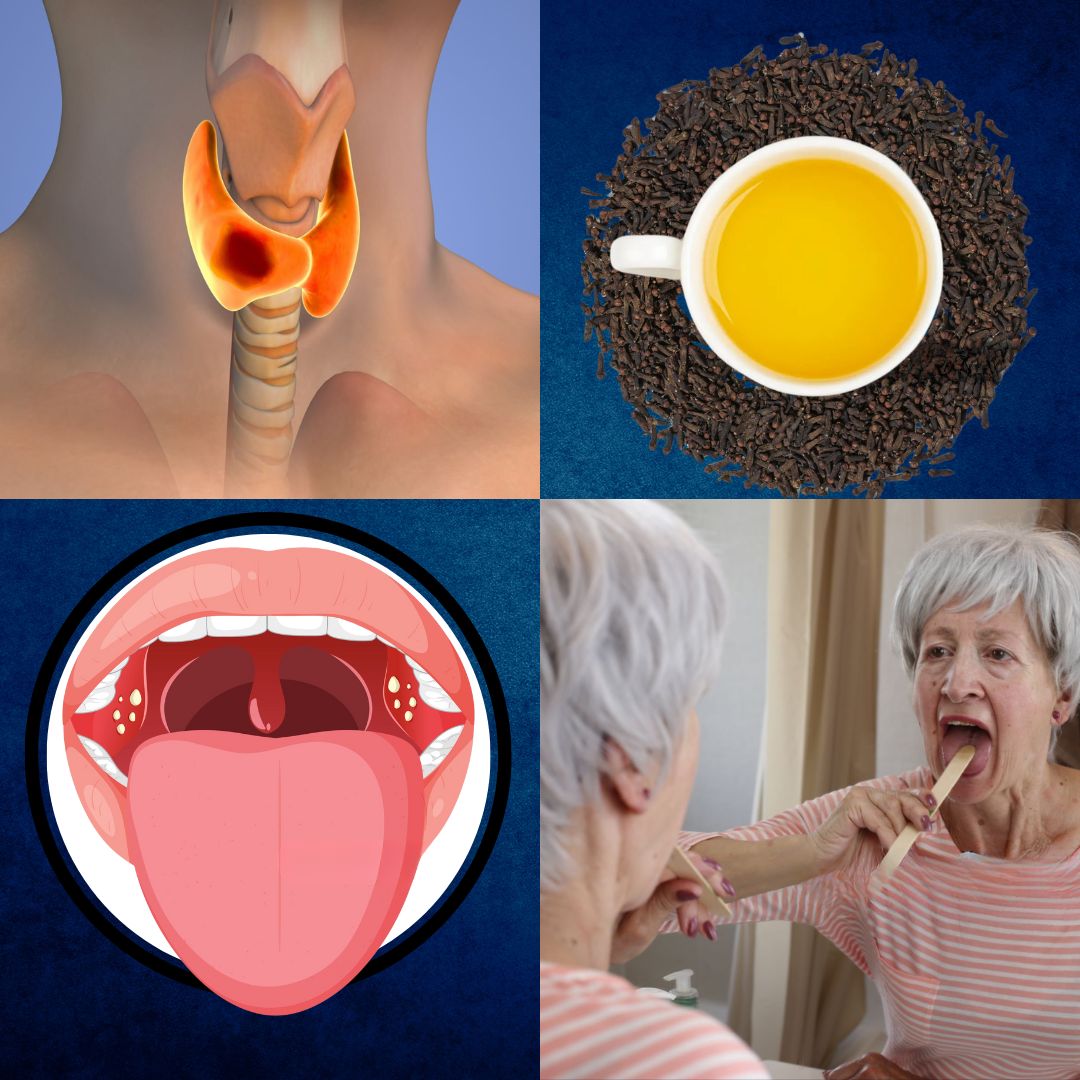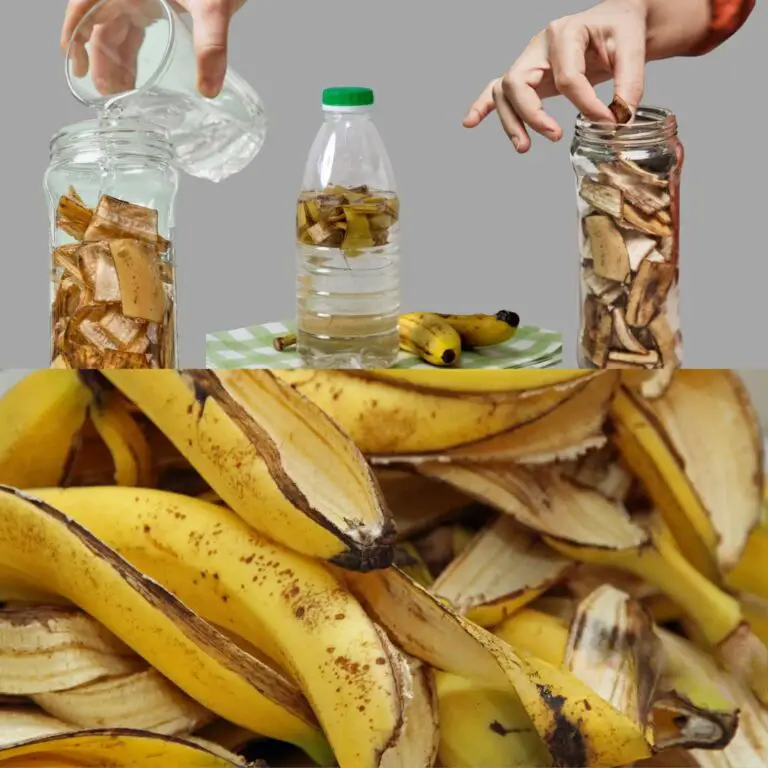The Natural Antibiotic That Soothes Sore Throat and Inflammation
Introduction
If you’ve ever battled a sore throat or inflammation, you know how irritating and painful it can be. Many people rush to over-the-counter medications, but what if nature already provides a powerful remedy right in your kitchen? Enter cloves, a spice celebrated for its natural antibiotic properties, ability to kill sore throat bacteria, and reduce inflammation. This aromatic bud has been used for centuries in traditional medicine and is now gaining recognition for its scientifically backed health benefits.
In this comprehensive blog post, we’ll dive deep into why cloves are nature’s answer to soothing sore throats and fighting inflammation. More than just a spice, cloves can be a natural antibiotic powerhouse. Plus, I’ll share a unique recipe that harnesses cloves’ healing power, along with pro tips, ingredient swaps, and storage advice to ensure you get the best results.
Ready to discover how cloves can change your health routine? Let’s get started!
Why You’ll Love This Recipe
This recipe is not just about flavor — it’s about healing. Unlike typical throat remedies loaded with synthetic chemicals, this natural clove-based concoction combines simple ingredients that work synergistically to ease pain, fight infection, and reduce swelling. Its unique appeal lies in its holistic approach, delivering relief that’s gentle on your body but tough on harmful bacteria.
You’ll love the warm, comforting aroma of cloves, complemented by other soothing ingredients that make the remedy taste pleasant — not harsh or medicinal. Plus, it’s incredibly easy to prepare with everyday kitchen staples. Whether you’re battling a mild sore throat or chronic inflammation, this recipe is your go-to natural antibiotic, empowering you to take control of your health without reaching for synthetic drugs.
If you enjoy soothing herbal teas, you might also like our DIY Cinnamon Tea for Boosting Metabolism and Fighting Infection — it pairs beautifully with this clove remedy!
Ingredients
- Whole cloves – 2 teaspoons (ground if preferred)
- Raw honey – 2 tablespoons (natural antibacterial agent)
- Fresh ginger root – 1-inch piece, peeled and sliced (anti-inflammatory)
- Lemon juice – 2 tablespoons (boosts immunity and adds vitamin C)
- Warm water – 1 cup (to steep the cloves and ginger)
- Cinnamon stick – 1 small piece (optional, for added flavor and antimicrobial properties)
Necessary Tools
- Small saucepan or kettle (for boiling water)
- Fine mesh strainer or tea infuser (to remove cloves and ginger)
- Measuring spoons
- A mug or heatproof glass
- A spoon for stirring
Ingredient Swaps and Additions
If you want to customize or enhance this clove remedy, consider these swaps and additions:
- Honey alternatives: If you’re vegan or allergic to honey, try maple syrup or agave nectar, but note these lack the same antibacterial strength. For zero-sugar options, natural sweeteners like stevia or monk fruit extract work well.
- Ginger substitutes: Turmeric powder can be added for extra anti-inflammatory benefits.
- Lemon juice: You can replace lemon with lime or orange juice for a different citrus twist.
- Clove form: Ground cloves work fine but using whole cloves ensures a milder flavor and easier straining.
- Add herbs: Fresh thyme or sage can boost antimicrobial effects.
Step-by-Step Instructions
- Boil the water: In a small saucepan, bring 1 cup of water to a gentle boil.
- Add cloves and ginger: Add the cloves, sliced ginger, and cinnamon stick (if using) to the boiling water.
- Simmer: Reduce heat and let the mixture simmer for 10 minutes. This extracts the healing compounds.
- Strain: Pour the liquid through a fine mesh strainer into your mug to remove cloves and ginger pieces.
- Add lemon and honey: Stir in the lemon juice and raw honey while the tea is still warm but not boiling hot (to preserve honey’s enzymes).
- Mix well: Give it a good stir until the honey dissolves completely.
- Enjoy: Sip slowly to soothe your throat and enjoy the warming sensation.
Pro Tips for Success
- Use fresh ingredients: Fresh ginger and freshly squeezed lemon juice make a significant difference in flavor and potency.
- Don’t overboil honey: Adding honey to boiling hot water kills its beneficial enzymes, so wait a bit for the tea to cool slightly.
- Adjust sweetness: Depending on your preference and the severity of the sore throat, add more or less honey.
- Consistency matters: For ongoing inflammation, drink this tea twice daily for best results.
- Storage tip: If you plan to store, cool the tea and keep it refrigerated. Reheat gently.
For more expert advice on sore throat treatments, the Mayo Clinic’s page on Sore Throat Treatments offers a wealth of reliable information.
Serving Suggestions
This clove remedy works best warm, but you can serve it in different ways:
- Add a cinnamon stick or star anise as garnish for a cozy presentation.
- Mix with warm milk or plant-based milk for a soothing bedtime drink.
- Blend with a splash of apple cider vinegar for an extra immune boost.
- Pair it with a light snack like ginger biscuits or honey toast to complement the flavors.
- Serve alongside your morning breakfast to kickstart your day with healing benefits.
If you’re interested in immune-boosting foods to pair with this drink, the American Botanical Council’s article on Cloves and Their Bioactive Components offers great insights.
Storing and Reheating
Leftover clove tea can be stored in a sealed container or jar in the refrigerator for up to 48 hours. Avoid leaving it at room temperature to prevent fermentation or bacterial growth. To reheat, gently warm it on the stove or microwave until it reaches a comfortable drinking temperature. Avoid boiling to preserve honey’s natural enzymes and vitamin content. If you plan to keep it longer, prepare fresh batches to maintain potency.
Nutritional Information
Here’s a rough breakdown of the nutritional value per serving (1 cup):
- Calories: 80-100 (mainly from honey)
- Carbohydrates: 25g (mostly natural sugars from honey and lemon)
- Vitamin C: 15-20% of daily value (from lemon)
- Manganese: 2-3% of daily value (from cloves and ginger)
- Calcium: 1-2% of daily value (from cloves)
- Potassium: 3-5% of daily value (from lemon and ginger)
- Antioxidants: High (cloves and ginger are rich in antioxidants)
This drink supports immune function, reduces inflammation, and provides antibacterial effects, all with minimal calories.
For a broader understanding of inflammation’s role in health, you can explore this Harvard Health article on The Role of Inflammation in Health.
FAQs
Q1: Can I use ground cloves instead of whole cloves?
Yes, ground cloves can be used but they may result in a stronger, sometimes bitter taste and make straining more challenging.
Q2: How quickly does this remedy relieve a sore throat?
Many people notice relief within 30 minutes to an hour, but consistent use over several days may be needed for full benefits.
Q3: Can children drink this clove tea?
For children over 1 year old, it’s generally safe if diluted appropriately and without too much honey. Consult a pediatrician for young children.
Q4: Are there any side effects of using cloves as a natural antibiotic?
Cloves are safe in culinary amounts; however, excessive consumption can cause irritation or allergic reactions in some individuals.
Q5: Can this recipe replace antibiotics prescribed by a doctor?
No, it’s a natural complementary remedy. If you have a bacterial infection requiring antibiotics, follow your healthcare provider’s advice.
For more on clove benefits and risks, WebMD’s Clove Health Benefits and Risks page is an excellent resource.
Conclusion
Cloves are more than just a fragrant spice — they are a natural antibiotic weapon against sore throats and inflammation. This clove-based remedy blends ancient wisdom with modern science, delivering a healing experience that is both soothing and effective. Easy to prepare with simple ingredients, it offers a natural, safe alternative for managing throat discomfort and boosting immunity.
Incorporate this remedy into your health routine, experiment with customizations, and enjoy the many benefits cloves bring. You’ll not only feel relief but also gain a new appreciation for nature’s healing pantry.
For more natural healing recipes, don’t miss our posts on Natural Remedies for Sore Throat: Top 10 Herbal Teas, and Benefits of Honey for Immunity and Skin Health.







